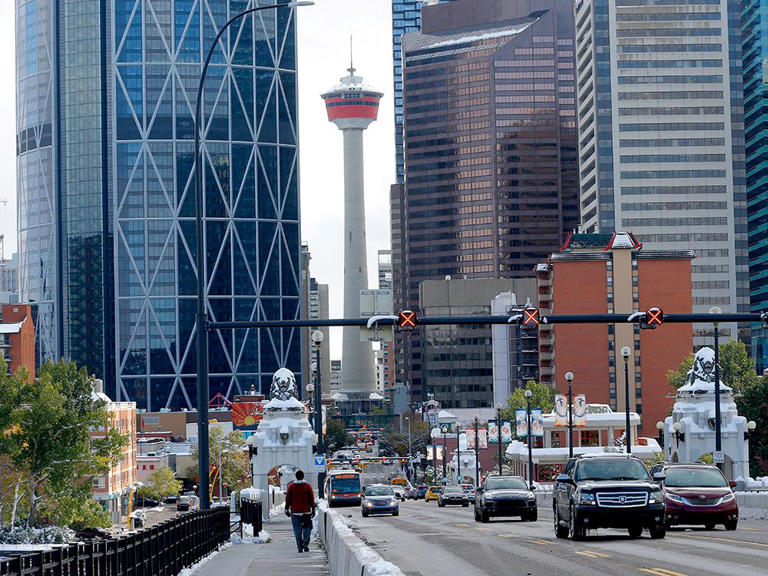Story by Pamela Heaven • 15h ago Financial Post

Since 2019, Albertans' purchasing power on average has declined by 3.6 per cent, while it has increased by 3.3 per cent in the rest of the country
Rising prices have been a thorn in our sides going on two years now, with inflation hitting lofty heights not seen since the 1980s.
But no where in the country are Canadians feeling the impact of that inflation as much as in Alberta, says a new report by Alberta Central .
“We find that Albertans have seen the most significant underperformance in their purchasing power since 2019 of all Canadian provinces,” writes chief economist Charles St-Arnaud.
The study finds that since 2019, Albertans’ purchasing power on average has declined by 3.6 per cent, while it has increased by 3.3 per cent in the rest of the country.
“This is an underperformance of 6.9 per cent relative to the rest of Canada, which is quite considerable given the relatively brief period of about three years,” said St. Arnaud.
Are prices higher in Alberta?
Inflation has been a roller coaster over the past few years, says the study. Back in 2019 it sat comfortably around the Bank of Canada’s target of two per cent. It dropped to zero early in 2020 as the pandemic hit and energy prices plummeted . Then it started to rise when the economy reopened in early 2021 as commodity prices rebounded and supply chain disruptions led to shortages. It peaked at about 8 per cent in the middle of 2022 when energy prices soared after Russia’s invasion of Ukrain
After the Bank of Canada rapidly hiked interest rates, the rate of inflation has slowed and in March sat at 4.3 per cent.
The consumer price index has increased by a cumulative 13 per cent since the end of 2019, said St-Arnaud. But it actually rose the least, 11.4 per cent, in Alberta. (Prince Edward Island suffered the worst rise at 16.6 per cent.)
If not inflation, what?
St-Arnaud says the problem is that wages and income growth in Alberta have not keep up with the rest of Canada. Since 2019, nominal wages and income in Canada have risen by 16.5 per cent, while in Alberta they have increased by only 8.6 per cent, an underperformance of almost 8 per cent, said the study.
Meanwhile, British Columbia, Quebec and Ontario have outperformed on wages and income over the past three years.
While the first culprit that springs to mind is the 2020 oil slump , St-Arnaud says the underperformance is broad-based across industries.
Rather his early analysis suggests other factors are at play. First, strong migration to Alberta, both from within the country and without, has kept the supply of workers in the province higher than in other regions, reducing the pressure to raise wages. This is backed up by the comparatively lower job vacancy rate in the province.
Second is an adjustment after the energy boom-bust cycle. In the 2000s and early years of the 2010s, high demand for labour drove wages in Alberta well above the national average. What is happening now is a return to normal with wages more in line with the rest of the country, said the economist.
Back in 2019, hourly wages and weekly earnings in Alberta were 6 to 9 per cent higher than the rest of the country, with disposable income 20 per cent higher — a situation that became know as the “Alberta advantage.”
Even today as Albertans see the biggest drop in purchasing power, they still earn more on average than households in the rest of the country.
But that is fading fast with hourly wages now on par with the rest of Canada and weekly earnings only 3 per cent higher.
“The underperformance means that the “Alberta Advantage is melting away rapidly, to a point where it has disappeared based on some measures,” said St-Arnaud.
No comments:
Post a Comment